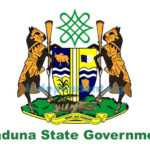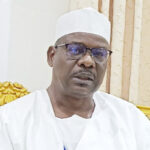In a scathing editorial on 29 April 2018, the Punch newspaper lamented findings of a 2017 study by the Oxford Poverty and Human Development Initiative (OPHI), a research centre at Oxford University, UK, which showed that 13 of the 19 northern states are the poorest in Nigeria, and one of the “most miserable places to live in the world”.
The incidence of “multi-dimensional” poverty, according to the editorial, is as high as 92 per cent in Zamfara State, 88 per cent in Jigawa, 87 per cent in Bauchi, 86 per cent in Kebbi, 82 per cent in Katsina, 77 per cent in Taraba, and 77 per cent in Gombe. Only a few northern states like Kwara and Kogi perform significantly better in a measure of poverty that takes into account various aspects such as lack of education, malnutrition, poor heath, unemployment and so on.
- Concerns over fresh electricity tariff hike
- 2023: Igbo leaders demand presidential tickets from APC, PDP
The editorial then lampooned northern leaders for playing politics with religion, rather than developing the region. “State involvement in religion has ruined the region and its cohesion”, it said, and warned that “states and the elite should stop dabbling in religion; instead they should invest in education, health care, infrastructure, skills acquisition and job creation”.
Of course, the Punch editorial has a point about the generally poor governance structures and outcomes in the northern states. The editorial is also correct about some of the solutions it suggested. But implying that the adoption of Sharia Law by several northern states at the turn of this century is the main cause of poverty in the region is a rather more contentious argument for which reliable evidence is needed.
It is more plausible, or at least less contentious, to argue that the North is the poorest region of Nigeria because the northern woman is poor. The average northern woman, aged 16-51, especially, is more likely than women across the country to have little or no education, more likely to have been married too early, more likely to have higher number of children than she and her family could provide for, and least likely to have any employment or income. This is more likely the reason, in my view, why Northern Nigeria is rightly adjudged one of the poorest patches on Planet Earth.
Still, my guess is that at least 35 per cent of Buhari’s 60 million votes since 2003 have come from this particular group of Nigerians in the belief, however mistaken or misguided, that a federal government led by him will give them voice and implement policies that would, at last, advance their lives economically. If they can vote, they can also enjoy the dividends of democracy. But to what extent has their 20 years of democratic investment been realised in terms of real economic dividends by this government over the past five years and counting?
The federal government does have a host of poverty alleviation policies under the Government Enterprise Empowerment Programme (GEEP), such as FARMERMONI, TRADERMONI and MARKETMONI, and others like N-Power, N-TECH and N-AGRO, and so on. And for these policies, the Minister of Information recently claimed, in a chest-thumping self-congratulation, that the Buhari government has achieved more in alleviating poverty than any other government before it in the history of Nigeria.
But a more measured reflection can easily identify several problems with these policies. First, they all look good on paper, but no one knows the extent to which they are actually reducing poverty in Nigeria, given the general climate of corruption and waste under which policy implementation occurs in Nigeria. So it is difficult to determine exactly how many Nigerians have benefitted genuinely from these policies, and to what extent they have helped reduced poverty in the country.
Second, they are all based on providing micro finance (often as small as N10,000 to N100,000) to self-employed people or micro, small and medium-sized business. In this sense, they are more an example of the tokenism that profoundly characterises policy formulation and implementation under this government, from which much more was promised and therefore expected. I am confident that on current evidence, these policies will not reduce even 10 per cent of the poverty levels in Nigeria.
Third, because the policies are generally targeted at people who already have employment or run small businesses, however small, such as traders, artisans, small-holder farmers, and so on, the policies are likely to miss or exclude a sizeable population of the poor altogether. The average Northern woman of whom we speak here, for example, is not an artisan, not a trader, does not have land to farm, and mostly does not run any kind of viable small business but depends mainly on a husband or relative whose own precariousness is all too evident.
Fourth, and perhaps most worrisome of all, the GEEP poverty alleviation policies, based on micro-financing and entrepreneurship as they are, presume that people who are self-employed or run small businesses actually have sufficient entrepreneurial skills to scale up and run viable small businesses with additional funding or finance provided by government. But this is a serious fallacy. Most human beings have no idea how to run any business, even if they appear to be running one.
In other words, nearly all of these policies exclude our average Northern woman, and, therefore, are likely to make her situation worse. What then can be done to economically empower the Northern woman? In particular, what could a Buhari government have done to empower the Northern woman?

 Join Daily Trust WhatsApp Community For Quick Access To News and Happenings Around You.
Join Daily Trust WhatsApp Community For Quick Access To News and Happenings Around You.


